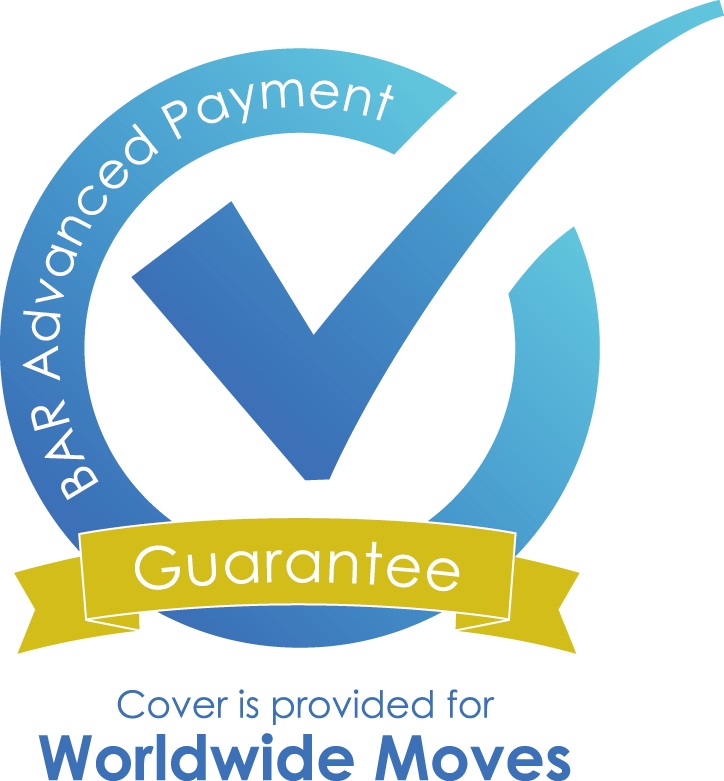Deciding to move abroad is an exciting but often overwhelming decision. Whether you’re seeking new career opportunities, a change of lifestyle or an adventure in a different culture, there’s a lot to consider before taking the plunge.
If you’re wondering where to begin, this guide will walk you through the essential stages of moving abroad, helping you to prepare for a successful transition to life in a new country. Our pick of useful websites to get you moving is at the end of the article.
Consider your motivations for moving
When you begin the process of moving abroad, it’s crucial to assess your motivation and set clear goals for the move. Knowing what you want from your relocation will shape the rest of your planning, from choosing the right country to understanding the type of lifestyle you can expect and the challenges you may face.
Are you seeking better career opportunities, a change of lifestyle or perhaps a new cultural experience? Maybe you’re relocating for family reasons, such as joining loved ones or starting a new chapter with a partner. Whatever your reason, take time to reflect on your goals and what you hope to achieve from the move.
Research your destination
Once you’ve clarified your motivation for moving, it’s time to research your destination options. Start by thinking about which locations could best fulfil your goals. If you want a specific career opportunity, look for a country that has a strong and stable economy or a thriving industry that you want to work in. If you’re looking for a more relaxed way of life, research cultures that value a balance of leisure and work.
You should also consider the cost of living, as it can vary dramatically between countries and even cities within the same country. Look into housing, groceries, transportation and general expenses to gauge whether it aligns with your budget.
Understanding the local culture is equally important, as it will help you prepare for life abroad and integrate more easily. Think about the local language – will you need to learn a new language or is there a significant expat community that speaks your native tongue? How will you cope with accessing local medical care or navigating legal issues?
Finally, research the job market to determine whether there are opportunities in your field or if you may need to upskill or retrain. This will help you understand the level of competition, salary expectations and any local qualifications that may be required to secure a position in your desired industry.
Plan your moving budget
Financial planning is a critical step when moving abroad, as it ensures you’re prepared for the costs involved and helps avoid any financial surprises. You can start by creating a detailed budget that includes all anticipated expenses, such as visa fees, flights, temporary accommodation and setting up a new home. You should factor in both short-term costs (such as the initial move and settling in) and long-term expenses (like rent, utilities and food).
You may also need to open an international bank account to manage finances across borders. You should research different options for transferring money internationally as the banks don’t typically offer the best rates, and make sure your chosen foreign exchange supplier is reliable. We recommend IFX Payments, who have been a trusted partner of Britannia Movers for many years. .
Additionally, it’s beneficial to have a savings buffer to cover unexpected expenses or emergencies. This can help you to maintain financial stability during the transition period.
Understand your immigration requirements
Determining the legal and immigration requirements is one of the most important steps when moving abroad. Each country has its own set of visa and residency regulations, so it’s essential to research the specific requirements for your destination.
You should look into the different visa options available, such as work visas, self-employment visas or student visas, depending on your reason for moving. Some countries also offer residency permits for long-term stays, which may include pathways to citizenship in the future.
You should take the time to ensure you understand the application process, required documentation and processing times, as delays can impact your move. In some cases, securing a job offer or proving financial stability might be required to obtain a work or residency visa.
Consider healthcare options
Health insurance is a crucial aspect of moving abroad, as healthcare systems vary greatly between countries. It’s essential to ensure you’re covered in case of illness or injury, as medical bills can be expensive without the right insurance.
Some countries offer public healthcare for residents, while others require private insurance as part of the visa application. You should research the healthcare system in your destination to understand your options.
If you’re not eligible for local health insurance, consider purchasing international health coverage. When choosing the right insurance, you should look for comprehensive coverage that includes emergency services, hospital stays and routine care. Also, you should be aware of factors such as the network of doctors, prescription medication coverage, and whether the plan includes coverage in multiple countries if you plan to travel frequently.
Research employment options
If you’re moving abroad to work, you’ll probably need to consider your employment options. Finding work abroad requires a strategic approach, as employment opportunities and requirements can vary depending on the country.
You should start by researching the job market in your destination. Look into the demand for professionals in your field, salary expectations and local employment laws. Some countries have specific work visas that require you to have a job offer before you can apply, while others may allow you to search for work after arriving.
You can use international job boards, recruitment agencies or networking through platforms like LinkedIn to find job openings. Aim to tailor your CV and cover letter to meet local standards and be prepared to navigate language barriers or differences in work culture.
Some countries may offer specific work programmes or internships for foreigners, which can be a great way to gain experience and make connections. It’s also useful to consider freelance or remote work options if your field allows it, as this can provide flexibility and the ability to work across borders. Many countries also have specific remote working visas, which can be a flexible option.
Find a place to live
When finding a place to live in a new country, you’ll need to carefully consider your budget, lifestyle and long-term plans.
You should start by rental markets in the area you’re moving to, as prices can vary widely depending on location, size and proximity to amenities. Renting is often the easiest and most flexible option, at least when you first arrive, as you’ll have time to settle in and explore the local neighbourhoods before committing to a long-term lease. Temporary housing, such as short-term rentals or serviced apartments, can also be a good option while you search for something more permanent.
If you’re considering buying property, make sure to research the local real estate market, property laws and any restrictions for foreign buyers. It’s important to understand the legal process of purchasing property in your new country, which may differ significantly from what you’re used to. Whether you’re renting or buying, make sure to factor in additional costs such as utilities, deposits and agency fees.
Make a plan for your finances and taxes
When moving abroad, it’s important to understand the tax implications and sort out your finances.
You should research the tax laws in your new country, as you may be subject to local taxes even if you retain financial ties to your home country. Some countries have tax treaties that prevent double taxation, while others may require you to file taxes both abroad and at home. You can consult a tax professional to help you navigate these rules and ensure you stay compliant.
Setting up a bank account in your new country will be essential for managing your day-to-day expenses. Look into the banking options available, including international banks with a presence in your destination, or local banks that offer services to expats. You may also want to consider opening a multi-currency account to simplify managing different currencies.
Additionally, you should familiarise yourself with currency exchange rates and currency transfer fees. Moving money across borders can incur charges, so it’s worth comparing different international money transfer services to find one that you’re comfortable with. .
Prepare for your move
Preparing for your move abroad will require careful planning to ensure a smooth transition. You should start by creating a checklist of everything you need to do before you leave, from organising travel documents to finalising your accommodation. This will be personal to you, but our international moving checklist will give you a strong starting point and save you some time.
When it comes to packing, focus on essentials, especially items that may be difficult or expensive to replace once you’re abroad. If you’re travelling light, pack versatile clothing that suits the climate of your new home, and don’t forget important documents such as your passport, visa and medical records.
If you are shipping large items such as furniture, this process may take several weeks or months depending on your destination, so you need to time this carefully. If you are arriving before your shipment, you’ll need a plan for how you will cope until your furniture arrives. As well as shipping full containers, international removal companies can provide support with transporting smaller consignments by road, sea or the much faster option of airfreight, and they can arrange storage as well.
In terms of logistics, you should aim to plan your journey well in advance, booking flights, arranging airport transfers and confirming accommodation for your first few days. Set up utilities and internet at your new place if possible, or make arrangements for temporary services until you can establish permanent ones. You should notify the relevant institutions, such as your bank, insurance provider and tax authorities of your move to ensure everything is updated before you leave.
International removals with Britannia
Moving abroad? Britannia Movers International can take care of your move with our tailored international removals service. Our friendly and experienced team will work to your timeline, budget, and needs, offering a complete door-to-door service and working with trusted partners around the globe to deliver a seamless, first-class relocation.
To find out more about our international removal services or request a free quote, you can call us on 0845 6006661 or email sales@britannia-movers.co.uk. Our team will be happy to discuss how we can help you with your international move.
Helpful websites
As a starting point for your research, you may find the following websites useful:
- Gov.uk – The UK’s official advice on what to consider when moving abroad
- EU Immigration Portal – official resources and advice on moving to European countries
- Expatica – independent and unbiased articles on moving and living abroad covering the most vital subjects
- Overseasjobs.com – a useful recruitment site for international professionals
- Quora – a social question and answer site on which emigration questions are posed regularly
- EasyExpat – a website that features articles, tools, a forum and classified ads, all of the topic of emigrating








